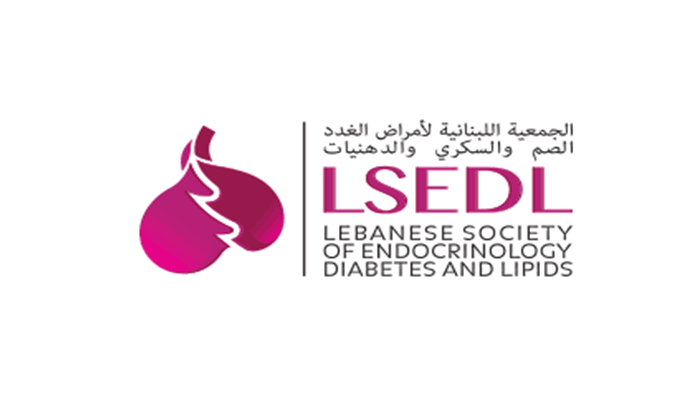Simple fasting blood sugar test detects early-stage diabetes and prediabetes, consequently, helps prevent complications
On the occasion of World Diabetes Day and to complement the campaign “Don’t miss the opportunity”, The Lebanese Society for Endocrinology, Diabetes and Lipids, in partnership with Merck, a leading science and technology company, launched a campaign entitled “Tfada el Miyyeh”- “Avoid the 100”. This campaign is aimed at highlighting the importance of early detection of diabetes through a simple test known as the fasting blood sugar test, to detect pre-diabetes which is the first step in the early stages of the diabetes continuum and avoid serious complications.
Through an educational awareness video, the campaign emphasizes on the blood sugar level of 100 mg/dL, through the easy and practical fasting blood sugar test.
There are implications of this large number for the high risks’ categories as it can be an indicator of early diabetes. The video raises awareness around the dangers of reaching this number when taking the fasting blood sugar test and the implications that arise with it. The campaign aims to educate the general public on the importance of identifying blood sugar level, managing prediabetes and diabetes if established, and encouraging them not to ignore the early signs or the disease by consulting a doctor to limit its progression.
Identifying prediabetes early can save many lives, especially among high-risk groups. This phase is a serious warning and a unique opportunity to take action that is not to be missed. 1 out of 2 people with diabetes[1] has not been diagnosed and the risk of cardiovascular disease is two to four times higher for people with diabetes[2]. Hence, it is very important to spread awareness about prediabetes and enable patients to discover the risk factors early by conducting the necessary blood tests. It is necessary to abide by the preventive measures, such as exercising regularly and following a balanced diet. It is also crucial to regularly follow up with your doctor, who may recommend, if necessary, to start treatment in order to avoid or slow down the disease progression to Type II Diabetes.
Building on this topic, the President of the Lebanese Society of Endocrinology, Diabetes and Lipids, Dr. Paola Atallah, said: “Diabetes may develop quickly and lead to serious complications if it is not detected in its early stages and simple preventive measures related to lifestyle are followed. 1 out of 5 people over 65 have diabetes[3], hence the importance of the early diagnosis for the high risks’ categories. There are several tests that detect blood sugar levels that the doctor recommends according to each patient’s case, the simplest is the fasting blood sugar testing in which the dimensions of the result number should not be ignored. 100 mg/dL is an indicator that warns of pre-diabetes. Doctor consultation and adhering to the instructions are essential to keeping blood glucose under control.”
Dr. Hala Sleiman, Merck’s General Manager for the Near East region, said: “The need to raise awareness about the risks and complications of diabetes is increasing day by day, which is likely to affect 700 million people globally by 2045, according to the statistics of the International Diabetes Federation (IDF)[4]. Hence, it is necessary to detect it as early as possible and reduce the associated risks.” She added, “Merck Healthcare is committed to its purpose “As One for Patients” to support healthcare professionals and relevant associations in this field, to spread awareness about early diagnosis that can prevent or delay the long-term health complications of diabetes. Early diagnosis through practical and routine examinations that can be performed early to identify risk factors in vulnerable groups and introduce preventive measures to reduce the progression of the disease.”
People that are most at risk are 45 years old and above who have a family history of diabetes. In addition, people who are obese with a body mass index (BMI) that exceeds 25 kg/m² [5]–[6], those who do not engage in any physical activity, or those who follow an unhealthy diet. Studies have demonstrated that preventive measures such as maintaining a healthy lifestyle, following a balanced diet, and exercising regularly to maintain a healthy weight, effectively reduces the risks of prediabetes progression.
It is noteworthy that last year, Merck launched a campaign “Don’t miss the opportunity”, that aimed at spreading awareness about prediabetes and the ways to manage it, because it is manageable, and should not be ignored in order to delay and avoid the development to Type II diabetes, and avoid its critical complications. It also urged citizens to assess their health status and discover risk factors by filling in the required information on the following link:
https://www.yourprediabetes.info/ar_EG/home/prediabetes-assessment.html
[1] Reference: International Diabetes Federation, Facts and Figures, World Heart Federation. Diabetes. 2016. www.world-heart-federation.org/cardiovascular-health/- cardiovascular-disease-risk-factors/diabetes/ (all websites accessed May 2016) Diabetes Canada on Twitter for diabetes awareness month
[2] Reference: International Diabetes Federation, Facts and Figures, World Heart Federation. Diabetes. 2016. www.world-heart-federation.org/cardiovascular-health/- cardiovascular-disease-risk-factors/diabetes/ (all websites accessed May 2016) Diabetes Canada on Twitter for diabetes awareness month
[3] https://idf.org/aboutdiabetes/what-is-diabetes/facts-figures.html
[4]https://idf.org/aboutdiabetes/what-is-diabetes/facts-figures.html
[5] prediabetes.pdf [Internet]. [cited 2020 Oct 9]. Available from: https://professional.diabetes.org/sites/professional.diabetes.org/files/media/prediabetes.pdf
[6] Association AD. 2. Classification and Diagnosis of Diabetes: Standards of Medical Care in Diabetes—2020. Diabetes Care. 2020 Jan 1;43(Supplement 1):S14–31.













